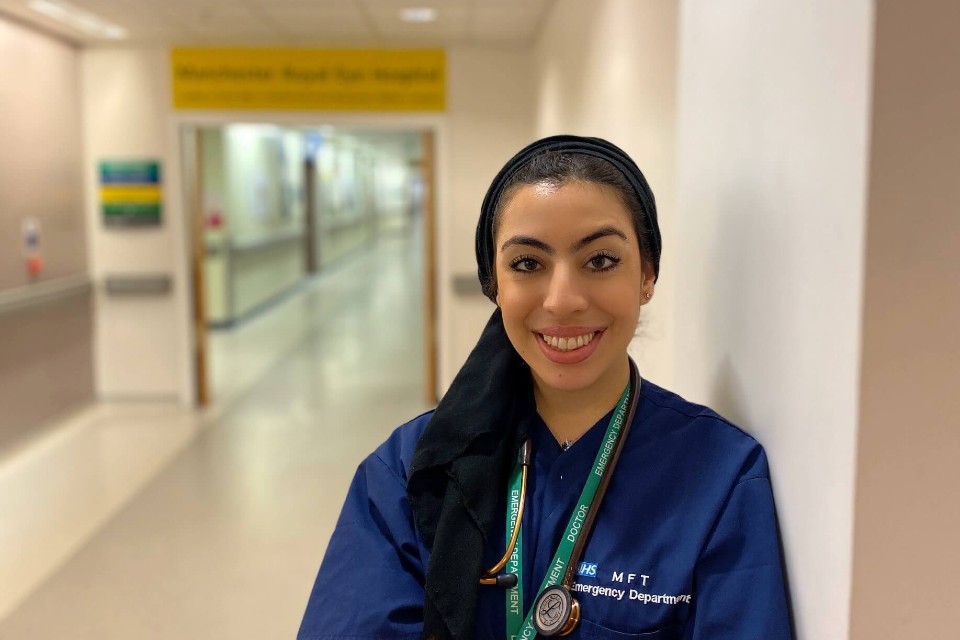If you know you want to be a paediatric neurosurgeon with a subspecialty in spinal surgery, that’s great. But for the majority of you, getting to the end of medical school probably involves wondering what the next step in your career is.
With this in mind, Dr Shahd Mobarak tells us how you can start the process of figuring out your future.
Rank your jobs wisely
Once you start your foundation years, the important decisions you should aim to make are between general practice (GP) or hospital medicine, and medicine or surgery.
You will soon be asked to rank a long list of jobs as you apply to the UK Foundation Programme (UKFPO). If you are unsure what you want to do in the future, I would advise you to choose a track that offers a medical, surgical, GP and emergency medicine placement. This will give you the broadest experience and allow you to make an informed decision.
Additionally, if you have an inkling that you like ENT or psychiatry, for example, you should prioritise jobs that offer those placements. Liking a specialty as a medical student and actually working as a doctor in that specialty are two completely different things.
Do a taster week
If you’ve ranked your jobs wisely but didn't end up getting the one placement you wanted, don’t worry - all is not lost. The foundation programme allows you to take one week as a ‘taster’ in a different specialty.
I highly recommend using this opportunity to further your career aspirations. Be organised, get in touch with a consultant in that department early on and arrange a taster week around your on-call rota.
Get involved
Most people see their job as a nine to five that they clock in and out of. You can cruise through the foundation programme with that attitude, but it won’t help you make a decision about your future.
If you see beyond the daily list of jobs you need to do and make a conscious effort to be involved in the nuances of the specialty, you will get a real feel for whether it’s something you enjoy or not.
When the team is well staffed one day, attend a rare disease clinic, perform a lumbar puncture, go to theatre. Beyond service provision, your job on the foundation programme offers you the opportunity to explore the niche areas of that specialty, and you may be surprised at what you find.
Gather information
My greatest piece of advice is to speak to people on each job you do. Speak to the juniors who will be full of enthusiasm for that specialty having just gone through the application process themselves. They will (hopefully) be able to offer great career advice and can point you in the right direction for your own application.
More importantly, speak to the consultants. You will spend eight years on average in training, but actually the majority of your working life will be spent as a consultant. Find out what their day-to-day life consists of, what their on-call burden is and how they got to where they are.
You will hear the words ‘work-life balance’ a lot throughout this journey, and it is definitely something important that needs to be considered when making career choices. There is no doubt that some specialties offer more flexible working hours than others.
What are your ambitions outside of medicine and can this specialty allow you to actualise those ambitions? A crucial point to remember is: there is no work-life balance if you hate your work.
With the rise in Less Than Full Time Training (LTFT), there are now new and alternative ways in which you can achieve your career goals without the immense personal sacrifice those before us may have suffered.
Financing and beyond
If money is of significant importance to you, you may want to consider the financial potential of a specialty as well as the hours of work in a week you will be doing.
For example, if your role as a doctor will be your main source of income, there are some specialties that naturally lend themselves to more work in the private sector, such as plastic surgery. However, if you want your job as a doctor to allow you to run side hustles, then a specialty like GP may be more suited to you.
The obvious questions
In this guide, I have advised on practical things you can do when starting out as new doctors. However, obvious questions remain that you need to ask yourself such as: ‘Do I like working with children?’, ‘Do I like treating acutely unwell patients?’, or ‘Do I like procedural tasks?’.
Questions like these will no doubt help you narrow down your career options and you can start ruling in/out specialties based on your answers. Keep challenging yourself with the obvious questions as you go through your jobs.
Final comments
If you come to the end of foundation training and you are still undecided, don’t rush to make a decision. Taking an F3 year is a healthy way to gain more experience and broaden your horizons. At the end of the day, you want to end up in a career that you love. And if you haven’t found it yet, keep trialling until you do.
Further resources:
